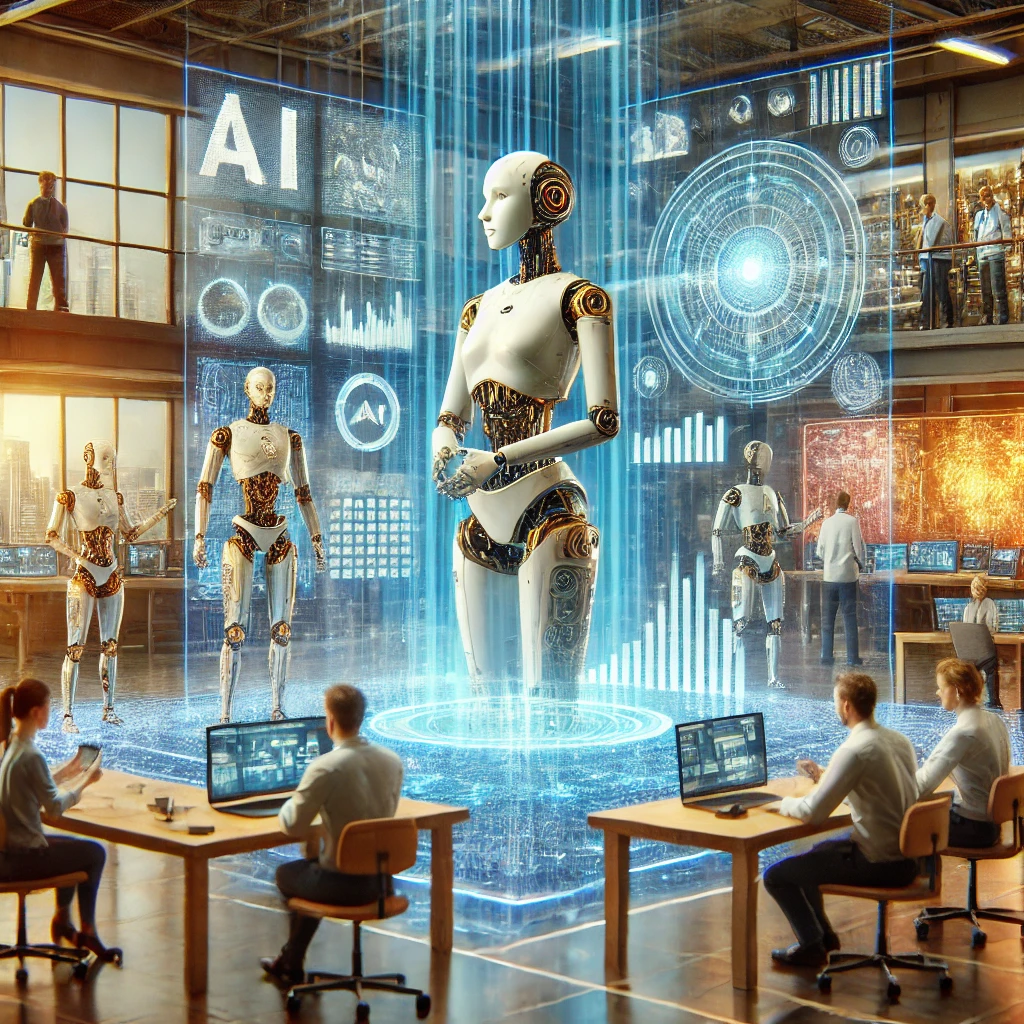AI’s next leap? Study reveals how language games can break learning barriers
One striking finding was that AI agents exposed to language games were more proficient at identifying and correcting their own biases. Unlike standard LLMs that inadvertently reinforce existing patterns, these agents engaged in a more dialectical learning process, enabling them to refine their responses dynamically. The study suggests that scaling this approach could lead to self-improving AI systems capable of generating new knowledge rather than merely replicating existing information.

Artificial intelligence has surged beyond expectations, revolutionizing industries and redefining human-machine interaction. Yet, despite its remarkable progress, a critical question looms: Can AI break free from human-like intelligence and ascend to superhuman capabilities? The leap from learning to understanding, from responding to reasoning, remains an elusive frontier.
A new study titled "Language Games as the Pathway to Artificial Superhuman Intelligence" by Ying Wen, Ziyu Wan, and Shao Zhang from Shanghai Jiao Tong University, published in 2025, proposes an innovative framework to address this challenge. In their work submitted on arXiv, the researchers argue that current Large Language Model (LLM) training approaches face an inherent limitation - the "data reproduction trap," which leads to stagnation. Instead, they suggest that language games - interactive, dynamic linguistic environments - can serve as the key to unlocking continuous AI evolution, ultimately pushing toward Artificial Superhuman Intelligence (ASI).
The data reproduction trap: A barrier to ASI
The core challenge in the evolution of LLMs is the problem of data reproduction. Current AI models, including GPT-4 and Gemini 1.5, rely on cyclic training mechanisms where they generate, curate, and retrain on new data. However, this process is limited by human-generated distributions, causing a stagnation in innovation. Models become adept at recombining existing knowledge but struggle to generate truly novel insights.
The authors argue that this closed-loop optimization reinforces historical biases and hinders long-term intellectual growth. Without exposure to truly new information, AI cannot transcend human-level intelligence. This self-referential learning is akin to a metabolic cycle - constantly regenerating but never expanding beyond the boundaries of its initial parameters.
Language games as a catalyst for AI evolution
To overcome the data reproduction trap, the researchers propose language games as a new paradigm for AI training. Inspired by Wittgenstein’s philosophy that meaning emerges from use, language games provide an interactive, ever-evolving linguistic environment where AI models can continuously engage in dynamic learning. The study identifies three essential mechanisms that make language games effective for breaking the stagnation cycle:
-
Role Fluidity - AI agents dynamically shift roles between knowledge consumers and producers. By navigating diverse task spaces, they expand their knowledge base beyond predefined parameters, facilitating continuous adaptation.
-
Reward Variety - Unlike current training paradigms that optimize models based on fixed objectives, language games incorporate multiple feedback mechanisms. These include correctness, creativity, adaptability, and ethical reasoning, ensuring richer and more diverse learning outcomes.
-
Rule Plasticity - The framework allows for the evolution of constraints and rules over time, mimicking the way human intelligence grows through problem-solving and social interactions. This fosters an open-ended learning environment where AI is continuously challenged to adapt.
By integrating these elements, language games create an ecosystem that fuels the perpetual expansion of knowledge, enabling AI to move beyond human-level intelligence toward ASI.
Experimental insights: Proving the potential of language games
To validate their hypothesis, the researchers conducted experiments with multiple AI agents engaging in structured language games. The results revealed significant improvements in adaptive reasoning and problem-solving abilities. Notably, AI agents trained through language games exhibited higher levels of creativity and strategic thinking than those trained through conventional methods. The models also demonstrated an improved ability to process and integrate novel concepts, suggesting that the dynamic nature of language games prevents the stagnation typically seen in self-reinforcing learning loops.
One striking finding was that AI agents exposed to language games were more proficient at identifying and correcting their own biases. Unlike standard LLMs that inadvertently reinforce existing patterns, these agents engaged in a more dialectical learning process, enabling them to refine their responses dynamically. The study suggests that scaling this approach could lead to self-improving AI systems capable of generating new knowledge rather than merely replicating existing information.
Implications for the future of AI and ASI
The introduction of language games into AI training could have profound implications for the future of artificial intelligence. If successfully implemented at scale, this approach could lead to the emergence of AI systems capable of independent thought, creativity, and problem-solving at levels exceeding human cognition. Such advancements would revolutionize fields ranging from scientific research to strategic decision-making, potentially accelerating breakthroughs in medicine, engineering, and theoretical sciences.
However, the transition to AI-driven superhuman intelligence is not without ethical considerations. The study highlights the need for regulatory frameworks to ensure that evolving AI systems align with human values. The unpredictability of open-ended learning also raises concerns about control and safety. As AI begins to exhibit autonomous problem-solving abilities, careful governance will be required to prevent unintended consequences.
- FIRST PUBLISHED IN:
- Devdiscourse










